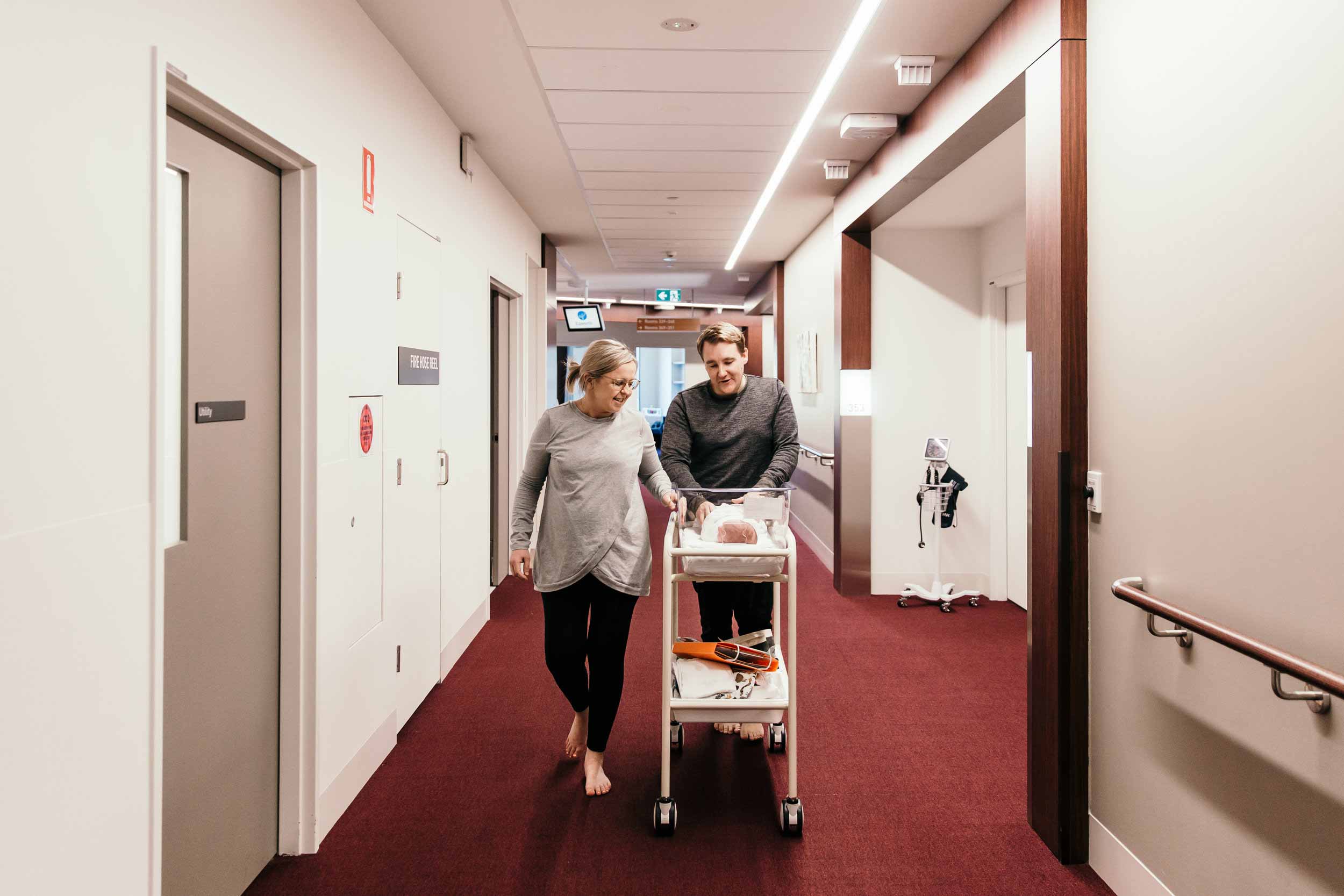Exercise plays an important role in your recovery and healing after giving birth.
While you may be keen to get back into an exercise routine, it’s vital that you don’t do too much too soon. It’s best to talk with your obstetrician and physiotherapist about how your body is healing before you jump into exercise.
Remember, your body needs time to heal and rest and over-doing it can mean you face a longer recovery.
We recommend some gentle exercise, including: pelvic floor exercises to strengthen the pelvic floor and perineal muscles. Leg extensions and curls, gentle slow stretches, arm curls or extensions, pulling your abdominal muscles towards you spine. Avoid sit ups and crunches and opt for slow, short walks.
As your baby grows during pregnancy, your abdominal muscles will have stretched, weakening your core region. The separation should naturally decrease over the first eight weeks after delivery, and may continue to reduce for six to twelve months after birth. Exercising these muscles helps to regain your core strength and protect your spine and pelvis.
One exercise you can do to help is this: Lie on your back with your knees bent, generally draw in your lower stomach in below your belly button with a breath out. Remember to keep your back straight and breathe as normal.
Research has shown that time is the key indicator of abdominal separation and it is recommended that you wait until your six-week postnatal check before increasing your intensity level. It is important to check with your doctor, midwife, or continence professional before returning to exercise.
Fresh air is great for you and your baby.
Some pregnant women will experience pelvic instability. This is caused by the pregnancy hormone Relaxin that allows your ligaments to relax and soften to allow for your baby’s birth.
Some women will need a support brace, or crutches, along with a gentle exercise program from the physiotherapist. This condition will impact on the types of exercise recommended after your baby’s birth.
A common issue some women experience is Diastasis Recti, where the abdominal muscles separate as the pregnancy progresses. Without attention it can impact on your health later in life. It’s easily diagnoses and checked by the physiotherapist who will give you strengthening exercises to help bring the abdominal muscles back together and give you advice on how to protect your body.
For most women, getting back into pre-pregnancy shape takes time, effort, and patience. Be kind to yourself. Going on extreme diets or excessively exercising is harmful and unnecessary.
While you’re at Epworth, a physiotherapist will visit you during your stay to discuss pelvic floor exercises, check for abdominal muscle separation, postnatal exercise and can discuss any other specific concerns.
You can find more support via our Mobile Midwife.
Listen to your body
09 August 2021


